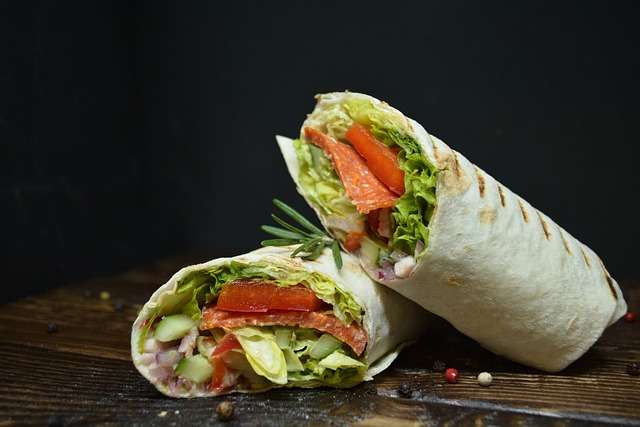
Key Facts for Parents
Organic Baby Food As a parent, giving your child the best start in life is imperative. While feeding, it is one of the most difficult decisions you may have to face in the whole of baby life-organic or conventional. While organic baby food has emphasized its beneficial characteristics from natural, pesticide-free ingredients, many parents still wonder: Is organic formula really healthier for my baby? The following guide gives insight into some salient facts, advantages, and factors for you to make an informed decision on whether organic baby food is the right fit for your family.
What is Organic Baby Food?
“Organic” means that foods are grown and processed without the use of any synthetic fertilizers or pesticides or any GMO. Certified Organic baby foods, especially those that bear the USDA seal, meet rigorous standards aimed at providing assurance that such foods contain no artificial additives or preservatives. Another distinction for organic baby food is that any animal-based ingredient must not contain antibiotics or growth hormones. Organic baby foods are made from raw, whole ingredients and handled to be as clean and pure as they can be.
Basics on Organic Certification
USDA accredited products in the United States govern the majority of organic foods produced. They determine certain rules and regulations concerning organic farming and processing practices. The USDA organic seal means:
at least 95 percent of the ingredients are certified organic,
No GMOs,
Animals are treated with respect and raised on natural farms-without growth-promoting hormones or antibiotics.
With organic baby food, the use of synthetic colors, preservatives, and flavors is put on hold-the protean appeal to parents seeking the scanner code that means “as clean as possible.”
Table of Contents
Key Benefits of Organic Baby Food
1. Reduced Exposure to Pesticides and Chemicals
One commonly spelled-out benefit associated with organic baby food is the reduction in exposure to synthetic pesticides and harmful chemicals. Since babies have developing immune systems, even minuscule levels of pesticide residues can create risks. Organic baby foods are beneficial in reducing this exposure and assuring all parents of the safety of their children’s food.
2. No Genetically Modified Ingredients
Most parents find organic baby foods free of GMO, as is legally stipulated. The health impact of GMOs, especially when consumed by infants, continues to be debated. Far from taking potential risks related to genetically modified foods, organic basically provides peace of mind.
3. Some Foods Have Higher Nutritional Quality
Some studies suggest that some organic foods may have superior value packed in e.g. vitamins, minerals or other important beneficial constituents when compared to their equivalent conventional counterparts. For example, organic fruits and vegetables may possess more antioxidants in their cellular systems which in turn lend support toward the immune system. But a small advantage in nutrition may not really count in any major sense.
4. Encourage Natural and Sustainable Farming Practices
By choosing organic, farmers are environmentally conscious and aggressively supporting sustainable agriculture. Organic farms tend to have better soils, help maintain biodiversity, and generally reduce pollution. Parents who appreciate greenness can choose organic baby food as an extension of their values.
Is There a Disadvantage in Organic Baby Food?
1. Higher Cost
One of the drawbacks of organic baby food is that it is generally more expensive than ordinary ones. This is basically attributed to the fact that farming techniques in organic farming are usually labor- and time-intensive; hence, they cost a little bit more. Henceward, organic baby food could be the chief consideration if you are on a tight budget.
2. Sometimes Availability
Often, organic baby food is not readily available to many buyers. Some options are offered by larger retailers and health food stores, but rural or secluded places could offer little diversity in organic baby food choices for some parents.
3. The Label “Organic” Doesn’t Always Equal to “Healthier”
This particular label is bound to stringent regulations of pesticides and other additives; hence, it does not necessarily mean well-balanced nutrition composition. Organic cookies or snacks, for example, can have a high sugar or nitrate content. It is best, hence, to always read the labels when purchasing organic baby foods and prioritize whole, wholesome ingredients instead of merely going for an “organic” seal.
Comparison Between Organic and Conventional Baby Foods
Due to the differences in nutrition as well as safety, herein are presented organic baby foods as opposed to conventional ones with some more detailed look to ease your decision-making process in this area:
Nutrition Comparison
Vitamins and Minerals: Generally, organic and conventional baby food have similar levels of essential nutrients, although certain organic produce may contain slightly higher levels of antioxidant compounds.
Fatty Acids: In situations in which baby food includes animal products like meat or dairy, organic baby foods may be of better quality if it’s due to the type of feed given to animals.
Additives: Organic baby foods are usually free from artificial preservatives, colors, and flavors, making them healthier.
Comparison of Safety
Pesticide Residue: They contain significantly lower residues of pesticide than conventional baby foods, so babies with an immature immune system may expect to have lower possible risk factors.
Antibiotics and Hormones: Indeed, organic animal products are not treated with antibiotics and hormones and consequently, some parents may not wish to feed their babies with such products.

Organic Baby Food Selection Tips
Organic Baby Food Selection Tips
Once in on organic baby foods, here are a few pointers on choosing the best of the lot:
Ensure Authentic Certification: USDA Organic certification provides a fairly trustworthy standard, but other certifications like Non-GMO Project Verified give even more reassurance.
Label the Ingredients: Not every variety of organic baby food is made alike. Opt for those products that, ideally,
contain less than five ingredients, and only easily recognizable whole-food ingredients.
Fresh Is Best: Organic baby foods often come in their most nutritious forms in economy size per refrigerator or freezer, allowing you the best nutrients possible. Fresh or frozen organic foods can outplace their shelf-stable counterparts in nutrition.
Try Making Your Own: Homemade organic baby food is often cheaper and can be made to suit one’s own tastes, allowing the freshest choice of foods and complete control over preparation.
Recipes to Make Organic Baby Food at Home
The truth is that making organic baby food in the house is simple, economical, and enjoyable. Here are some easy baby food recipes that use organic ingredients:
Organic Sweet Potato Puree
Ingredients:
1 medium organic sweet potato
Instructions:
Peel and roughly chop the sweet potato.
Steam until tender, about 15 minutes. Puree until smooth.
Advantages: Sweet potatoes are rich in Vitamin A, great for your baby’s eyesight and immune functions.
Organic Avocado and Banana Mash
Ingredients:
1 organic avocado
1 fully ripe organic banana
Instructions:
Mash up the avocado and banana until smooth.
Advantages: Rich in healthy fats and potassium, great for brain function and energy.
Frequently Asked Questions
Organic baby food can, in some cases, help decrease exposure to pesticides, GMOs, and additives, and does promote sustainable agriculture. Not to detract from such awareness, however, in most cases very few-few or no-observable5 nutritional differences identify it and some of values and priorities attached to it.
1. Will organic baby food spoil faster?
Yes. Organic baby food spoils faster simply because it has no magie preservatives. A take home lesson-if you are storing for the baby, always make sure the baby food is hidden and of course the date.
2. Is homemade organic baby food as nutritious as store-bought?
Of course it is! Home-cooked organic has the potential to equal-or sometimes surpass-over-the-counter offerings, if only for the complete control that whips-a-sauce, pulls-a-grain, builds-a-pasta options provide in the matter of selecting ingredients and freshness.
3. What are the foods that, if incidentally purchased, you should aim to get organic?
The Environmental Working Group (EWG) has prepared a “Dirty Dozen” list, where they specifically identify those farm produce which might on another large scale contain higher pesticide levels, e.g., strawberries and apples, recommending organic varieties for such items.
4. Does organic baby food cost significantly more than regular baby food?
Evidently, for others such another thing will vary. Should your concern actually be to save chemicals, giving a good play to your expenses may go a long way towards assuaging your conscience.

Conclusion
In choosing between organic and conventional baby food, there may not be one single answer. Organic baby foods have benefits: lower pesticide exposure, support of sustainable farming trends, and will not contain artificial additives, which could prove very attractive for those parents pursuing the cleanest option possible. Nutritional differences between organic and conventional baby foods are usually negligible-this means that you will determine the option through what is fundamentally important for you.
Parents on a budget or living in places where access to organic food is limited should not worry if they cannot afford to go organic. Each person-our kids included-can be healthy and well-nourished with fresh, minimally processed, and balanced foods that need not be organic.
Finally, the best choice is the one that best fits a family which best suits their needs, budget, and values. Organic or otherwise-you’ll still be doing your best to encourage your baby’s development as you see fit for your family.

Pingback: Best Food 2024